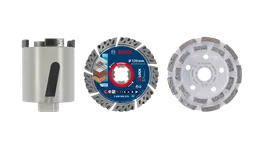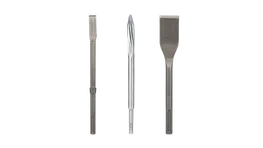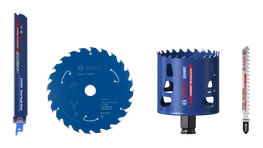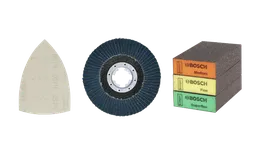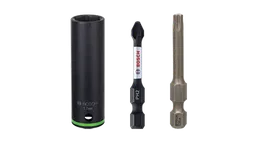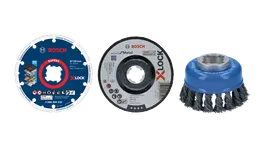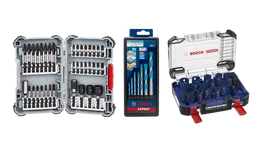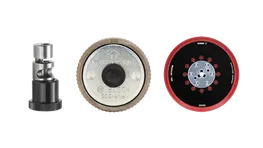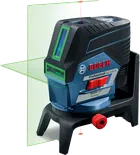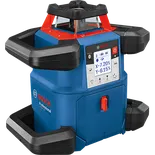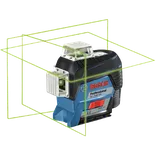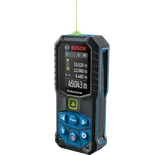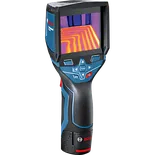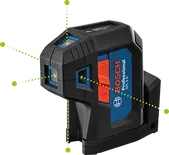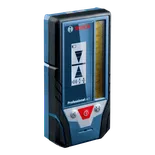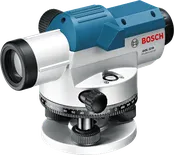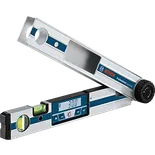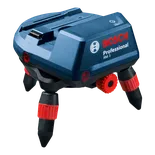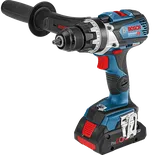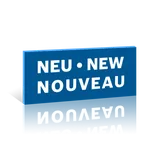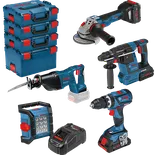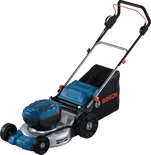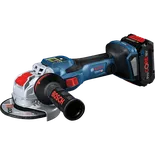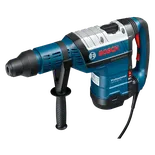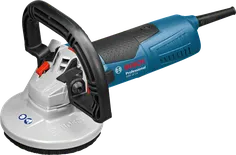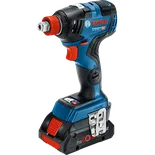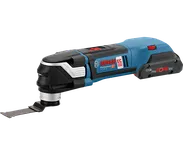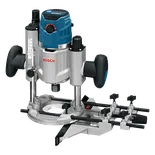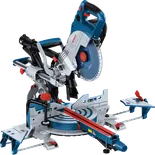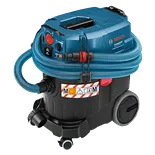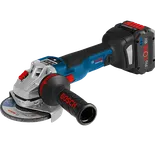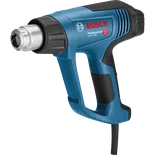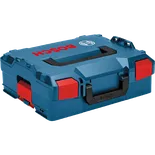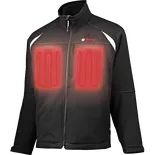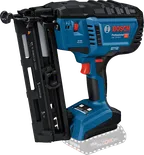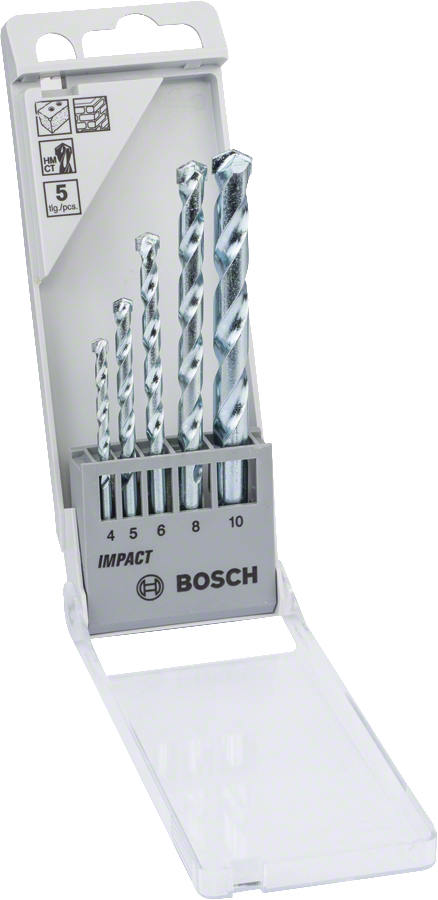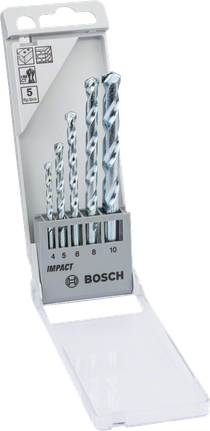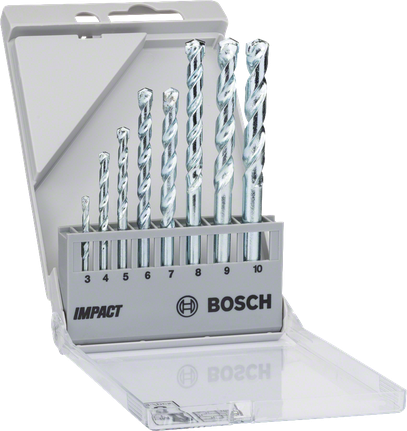

CYL-1 Drill Bit Pack
For rotary drills/drivers, For impact drill/drivers
- 2-flute U-shape provides good dust removal
- Standard carbide tip makes the bit more wear-resistant
Materials


Choose your Variant
2 options
Fits tools of most brands

Cylindrical shank compatible with three-jaw drill chucks
Optimised for Drilling in Masonry
CYL-1 Drill Bit is optimised for drilling in masonry
- Standard carbide tip makes the bit more wear-resistant
Product Options
Available product options: 2

|
Part number

|
Diameter mm

|
Working length mm

|
Total length mm

|
Pack quantity

|

|
|---|---|---|---|---|---|---|
| 2 608 590 090 | 4.0; 5.0; 6.0; 8.0; 10.0 | 40; 50; 60; 80; 80 | 75; 85; 100; 120; 120 | 5 Pcs | Buy now | |
| 2 608 590 091 | 3.0; 4.0; 5.0; 6.0; 7.0; 8.0; 9.0; 10.0 | 30; 40; 50; 60; 60; 80; 80; 80 | 60; 75; 85; 100; 100; 120; 120; 120 | 8 Pcs | Find a local dealer |
out of products
Frequently asked questions
The HEX shank has several benefits over the CYL shank. While both shank types fit into three-jaw chucks of a standard drill, the HEX shank offers a more secure connection: due to its geometry it won’t slip in the chuck. The HEX shank ensures maximum power transfer from your machine to the drill bit. The HEX shank also gives you more flexibility when choosing your tool: you can use it with standard drills with three-jaw chucks as well as impact drivers with ¼” internal hexagon tool holders. The 3-wing shank of our CYL-5 drill bits only fits three-jaw chucks, but otherwise it offers benefits similar to those of the HEX shank: it fits in the chuck securely, it doesn’t slip and ensures maximum power transfer from your machine to the drill bit.
CYL-1: Suitable for brick and limestone. CYL-3: Suitable for concrete, soft stone, brick and limestone. CYL-5 / HEX-5: Suitable for concrete, soft stone, brick and limestone. The 3-wing shank of CYL-5 drill bits only fits three-jaw chucks, but otherwise it offers benefits of the HEX shank: it ensures a strong connection and maximum torque transmission from your machine to the drill bit. The HEX shank is also versatile: it fits into standard drills with three-jaw chucks and impact drivers with ¼"" internal hex tool holders. CYL-9 / HEX-9 Multi Construction: Suitable for various materials, including concrete, brick, soft ceramic tiles, wood, plastics, sheet metals, aluminium and multi-layered (sandwich) materials. The HEX shank ensures a strong connection and maximum torque transmission from your machine to the drill bit. It’s also versatile: it fits into standard drills with three-jaw chucks and impact drivers with ¼"" internal hex tool holders. Impact and Rotary drill bits come in diameters of up to (and including) 16 mm and total lengths of up to (and including) 400 mm. For larger diameters and lengths use SDS plus and SDS max drill bits for concrete and stone applications.
Choose gear 2 for the fastest results in all materials except for ceramic tiles. If your power tool doesn’t have gear settings, keep the speed at a high rpm, using the trigger. When drilling in ceramic tiles, the power tool should be set to gear 1 to prevent the drill bit from overheating. If you’re using a corded tool, in addition to setting it to gear 1, you also need to control the speed by pushing the trigger halfway only in order not to go over 500 rpm (as, otherwise, it will go up to 1000 rpm). If you’re using a cordless tool, you don’t need to control the speed through the trigger once the tool is set to gear 1, due to cordless tools’ lower rpm limit. If your tool doesn’t have gears, keep the speed at low rpm (max. 500 rpm), using the trigger.
Use the impact mode when drilling in concrete, stone and full brick. Apply the rotary mode when drilling in brittle materials, such as hollow brick.
Cooling can help extend the lifetime of your drill bit if applied in the right way, but you don’t need to apply it. When drilling in hard stone, we recommend letting the drill bit cool down each time you drilled a hole.


